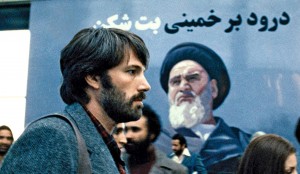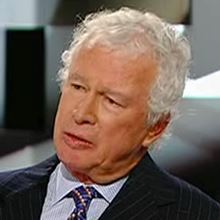Do you pay attention to Canadians? Should you?
If you are Canadian, do you pay attention to yourself? Should you?
Let me start with a recollection, as a preamble to my comments about the film, “Argo.” Years ago, I taught American history to high school missionary kids and Africans in Kenya. Most of my students were Americans, but I always had a sizeable mass of non-Americans in class.
I remember that some Canadian students tended to make snarky comments about Americans. According to the tenor of the snark, we Americans had an over-inflated sense of ourselves, we overlooked our faults, and we claimed more for ourselves than we should.
At the time I figured that their reaction was based on two factors: 1) a few of their fellow American classmates probably got obnoxious with their patriotism from time to time, and 2) it’s hard to be a minority, even if you are simply a Canadian trying to convince Americans that they should pay attention to your nation.
I did not think that my American history class contributed to either of these problems. My course was merely a verdant setting for anti-American snarkiness to flower. After all, I never subscribed to the philosophy that American history ought to be taught merely as a celebration of glorious advances and triumphs. In addition to the praiseworthy parts of American history, I taught the flaws and problems: times and places where racism, greed, sexism and unchristian behavior shaped American history. I was fair and balanced.
Now, I am not so sure.
Humans have an amazing capacity for self-deception, particularly if it makes us look better. And because of this capacity for self-deception, we can’t be so confident, on our own, that we have figured out when we aren’t deceiving ourselves.
I was reminded of the dynamics between my Canadian and American students when I watched “Argo.” And I was reminded even more of the problem of self-serving deceptions when, acting like the suspicious historian that I am, I looked into the history of the event a bit more after I had seen the film.
“Argo” retells the story of six Americans who were caught in Iran in 1979 when Iranian students stormed the U.S. embassy and held fifty-two Americans hostage for more than a year. These six Americans, however, managed to make their way to the Canadian embassy and (SPOILER ALERT – in case you have not seen the film or you don’t know how history turned out) after several weeks in hiding were smuggled out of the country by the CIA.
It’s a compelling story. Ben Affleck plays Tony Mendez, a CIA operative who has to figure out how to get the six Americans out. We see him working through several ideas and coming up with a crazy idea that gets approved, only because nothing else is better. We see him creating a fake film company so he can lead the six Americans out of Iran posing as a Canadian film crew. We see him flying to Teheran himself and driving the Americans through crowded streets with angry protesters. We see him finally get the six through the checkpoints at the airport and on the jet to wing it home. And we see him hugging his estranged wife in the end on her porch, while an American flag flutters in a light breeze them.
A fun movie. Good guys win. Bad guys lose.
And the Canadians? Well, the ambassador and his wife sure were nice to host the Americans at their house. Just the sort of thing we Americans would expect from our friendly neighbors to the north.
If the film weren’t portraying itself as history, I wouldn’t have a problem with this.
But we have this: according to Ken Taylor, who was the (real) Canadian ambassador who hid the six Americans, 85% to 90% of the ideas and consummation of the plan was due to the Canadians.
Is Taylor exaggerating? A bit sensitive, perhaps? After all, it is possible that he is 1) feeling a bit bothered by a few Americans who get kind of obnoxious with their patriotism, or 2) finding it hard to live in a world in which Americans don’t pay much attention to Canadians. Is that why he said this?
Maybe.
Probably not.
Well, no, actually I don’t think so.
I trust Taylor’s analysis. This is the clincher for me: Taylor came up with the 85% to 90% number in reaction to comments made by Jimmy Carter, who said that “90 per cent of the contributions to the ideas and the consummation of the plan was Canadian.” So is Carter misrepresenting the situation? I don’t see why he would be. The Iran hostage crisis was the most damaging and painful event in his presidency. He has every incentive to play up and exaggerate the role the U.S. played in this one bright spot of that traumatic ordeal. Why would he misrepresent the event in a way that downplays the government he led? I’m buying the analysis given by Taylor and Carter.
Ben Affleck could have made essentially the same film, only with the Canadian Security Intelligence Service as the heroes rather than the CIA. He could have cast himself as Ken Taylor and done all those things that Tony Mendez did. But he did not.
Here is my question: would “Argo” have sold as well as it did if the story was about
Canadians saving six Americans, even if it were the same thrilling story of danger and escape? Would Americans have enjoyed the movie?
Would it have won an Academy Award for Best Picture?


